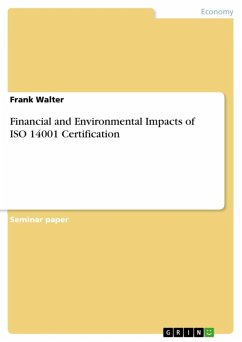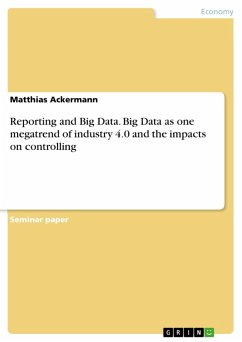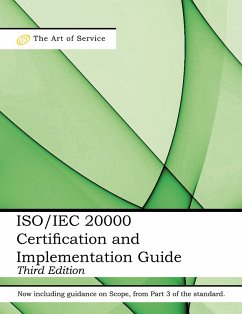Seminar paper from the year 2004 in the subject Business economics - Business Management, Corporate Governance, grade: A (1.0), San Francisco State University (College of Business), course: Individual Study: ISO 14001, language: English, abstract: Interest in environmental management has been growing strongly in the corporate world over the recent years. It has been boosted by theorists and practitioners who promised huge win- win opportunities in this area, with ecologically conscious management practices benefiting the natural environment and at the same time advancing the competitiveness of companies or even national economies (e.g., PORTER 1991). Even though this win-win rhetoric has been criticized sharply (e.g., WALLEY/WHITEHEAD 1994), environmental management remained an important part of many businesses' agenda for different motives - be it in order to exploit win-win potentials or to ensure legal compliance (AN- DREWS etal. 2001), or be it intrinsically motivated, in order to avoid doing harm to the natural environment. One way of implementing and maintaining environmental management is by institutionalizing an environmental management system (EMS). Such an EMS constitutes a structured and systematic approach for "articulating goals, making choices, gathering information, measuring progress, and improving performance" in the environmental field (FLOR- IDA/DAVISON 2001:64). There is a wide array of different types of EMS's, reaching from company specific solutions to standardized national (like the British BS 7750), multinational (like the European Union's EMAS), or even global approaches (like the International Organization for Standardization's ISO 14001) (KRUT/GLECKMAN 1998). The ISO 14001 standard achieved particular prominence as an EMS: In July 2003, more than 53,000 organizations all over the world had an EMS which was certified according to ISO 14001 guide lines (PEGLAU 2003; see also chapter 2.2 of this paper). Its proponents promise huge environmental and financial/operational benefits. They assume that by implementing an ISO 14001 certified EMS, a company can improve both its natural environment and its bottom- line.
Dieser Download kann aus rechtlichen Gründen nur mit Rechnungsadresse in A, B, BG, CY, CZ, D, DK, EW, E, FIN, F, GR, HR, H, IRL, I, LT, L, LR, M, NL, PL, P, R, S, SLO, SK ausgeliefert werden.









